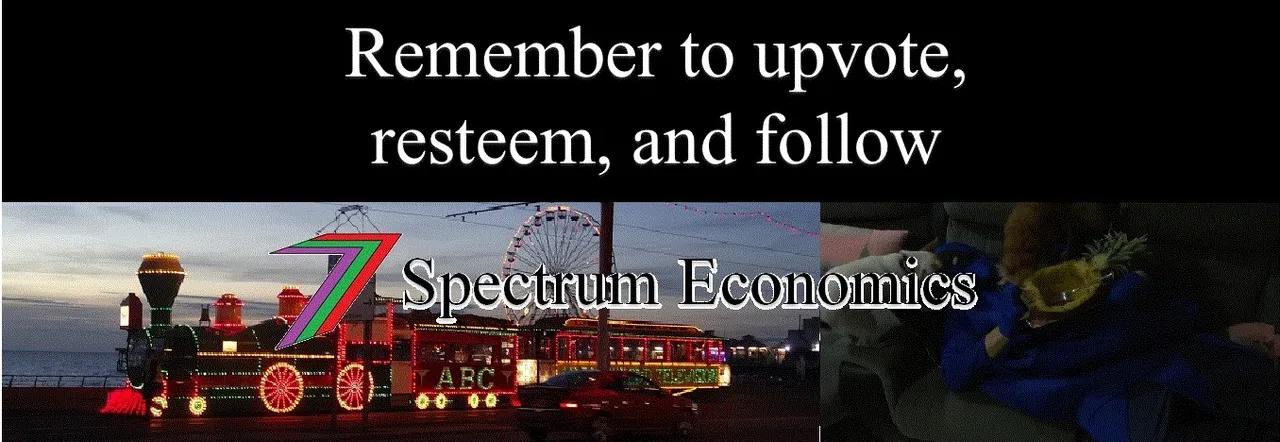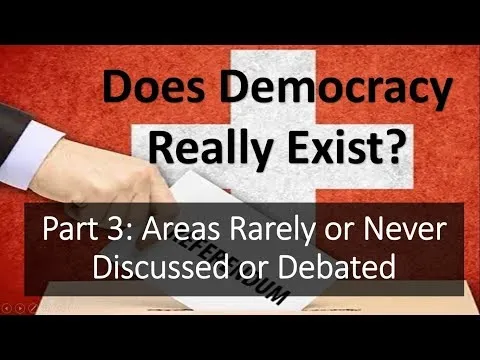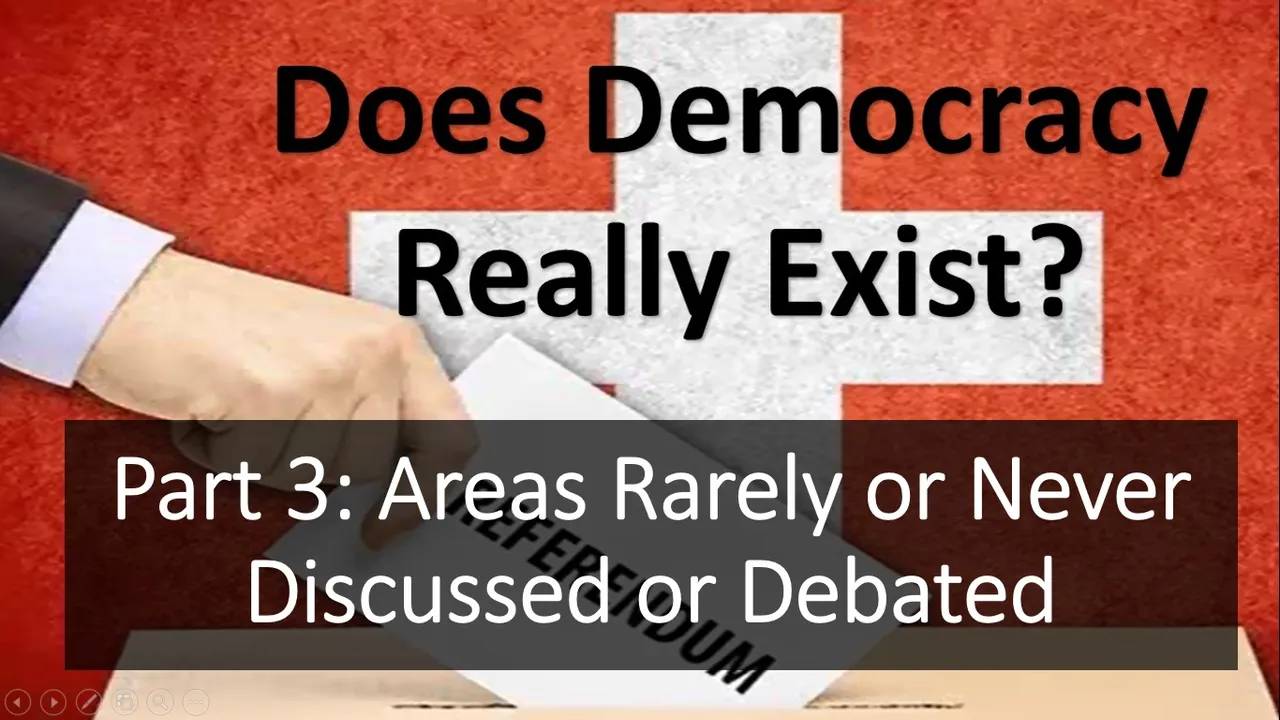
This post contains the third video in a four part series covering the relationship between economics and democracy. The series is mostly focused on issues relating to democracy in the context of Australia but many of these issues are quite prevalent in many other countries as well; western countries in particular. This video continues from the second video by focusing on the areas that are not or rarely debated by the major political parties. Here is a quick recap of the areas identified in the video:
- Health
- Education
- Immigration
- Infrastructure
- Foreign Policy
- Social Problems
- Political Structural Problems
- Environmental
- Economics
The reason why these areas are investigated is to demonstrate the lack of democracy present within our current system. A democratic system would bring the key issues to the forefront, debate them, inform the public and ultimately let the public decide what course of action should be taken. Instead, the key issues are ignored. Mostly irrelevant issues are hyped. The people are left ignorant to what is really happening and the power of the few remains unchallenged.
The third video delves into education, immigration, infrastructure, foreign policy and social problems.
Education
Starting with the issues relating to education, the following areas are discussed.
- Indoctrination
o School syllabus (memorisation of work)
o School hours and homework
o School uniforms - Access to education for all
- Home-schooling
- Standard of universities
- Special needs education
- Day care (for working families)
Education is used as a tool to prepare children for the workforce rather than prepare them for life. The system promotes discipline, following of instructions, and wrote learning over creativity and independent thought.
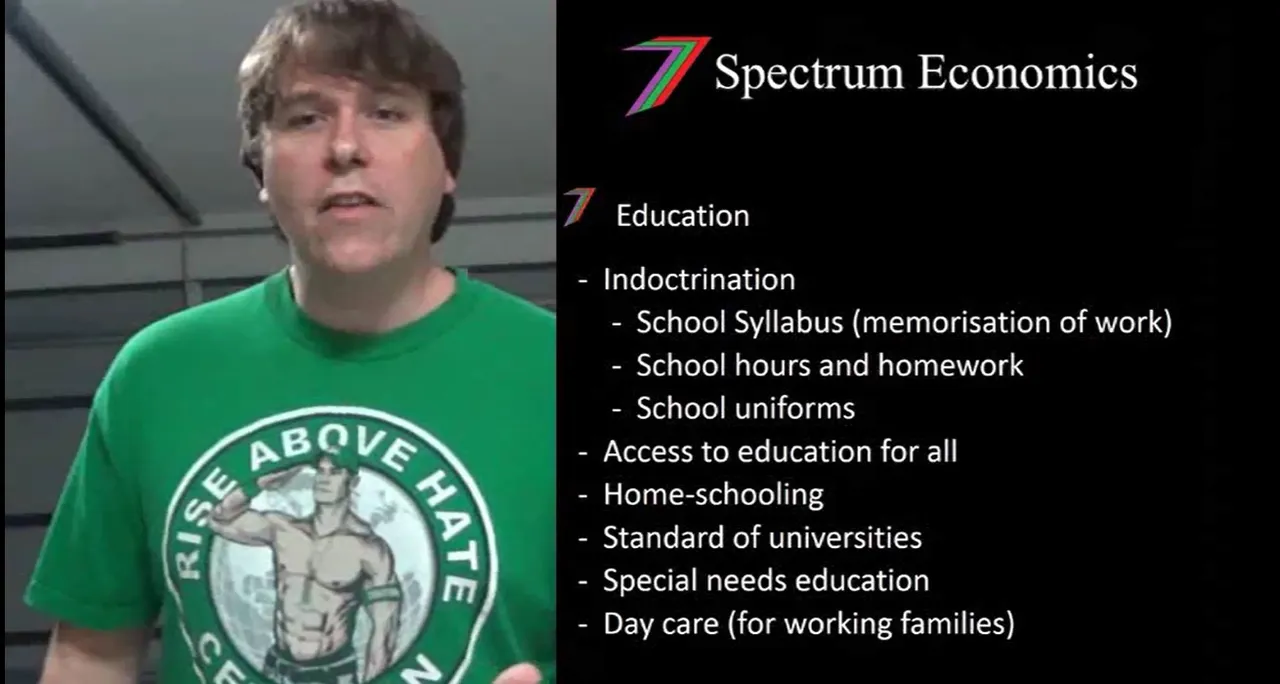
Immigration
The video then takes a look at immigration; this discussion around immigration is very much focused on Australian issues and may not be applicable to many other countries. The areas discussed are as follows:
- Illegal immigrants (Not JUST Boat People)
- Skills shortage
- Keeping families together
- Maintaining skills from overseas university students
- Massive bureaucracy (Immigration department)
A key feature of the Australian immigration system is its complexity. The sheer number of visas requires immigrants to hire migration agents or immigration lawyers just to explain how the system works and what visas are possible. The level of complexity is designed to confuse people and also indirectly discriminate using hidden technicalities (e.g. down syndrome people always get rejected based on medical grounds).
At the same time, the media and the politicians only ever emphasis the ‘problem’ of people arriving by boats. This in reality makes up an exceptionally small percentage of people attempting to stay in Australia. Almost all other flaws of the system are close to completely ignored.
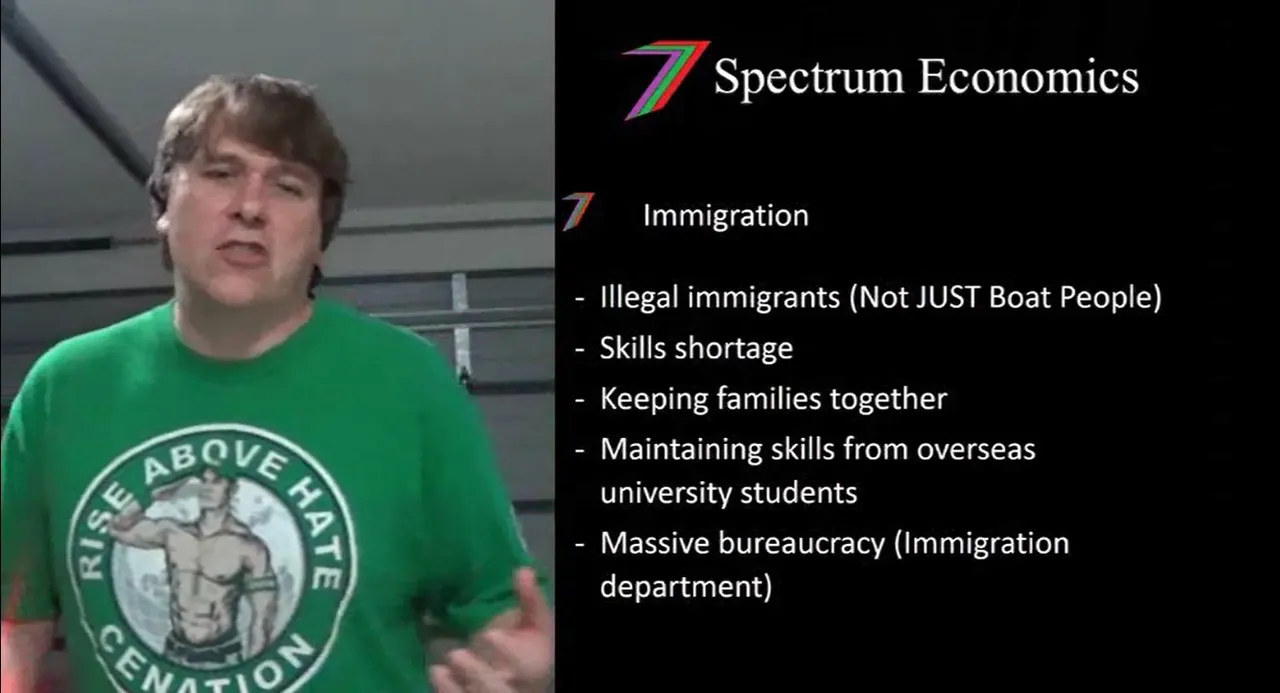
Infrastructure
The video moves on to discuss problems relating to infrastructure, still with a focus on Australia. The areas discussed are as follows:
- Access to basic facilities (Regional Australia)
o Running water
o Sanitation
o Basic health care facilities
o Proper housing - Energy (Tesla’s Ideas)
- Expensive public transport
- Pushing high concentration of work to urban areas
- Excessive military expenditure
Australia pumps billions of dollars into infrastructure every year. Somehow there are still large communities with close to zero quality infrastructure. We are talking about no basic health care, no running water or working sewage system. John Pilger has a great documentary called ‘Uptopia’. This documentary covers in detail the complete neglect of many of the Aboriginal communities by the Australian Government.
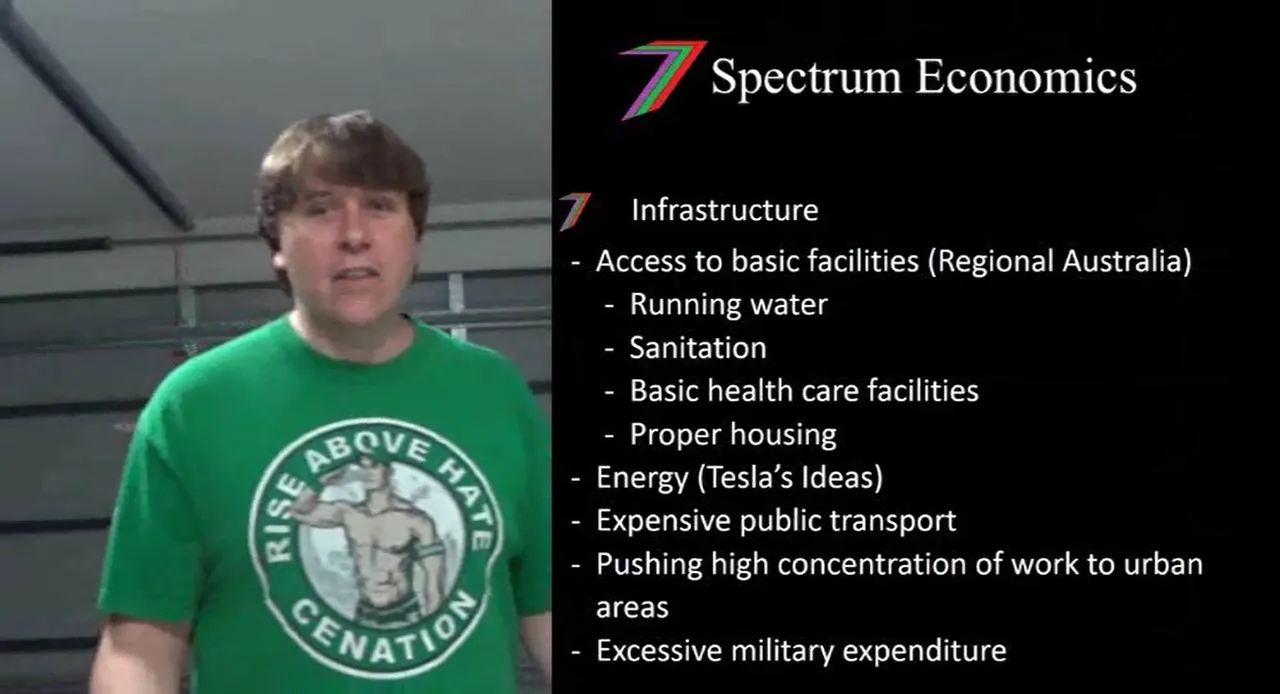
Foreign Policy
Not discussed issues relating to foreign policy is the next area investigated. The areas discussed are as follows:
- Follow everything USA says
o Follow into war
o Follow in policy - Democratic approach to foreign engagement
- Fighting other countries wars
- Fighting fake war on terrorism – when there are so many other problems
- Foreign aid
- Exploitation by MNCs
- Secret Trade Partnerships (e.g. TPP)
When it comes to foreign policy, the Australian Government has absolutely no backbone. The US Government owns Australian foreign policy which was previously owned by the British Empire. Australian soldiers have been dying for other Governments’ conflicts throughout the history of Australia. This travesty is not even mentioned by the two major parties. The people have absolutely no say in Foreign Policy at all.
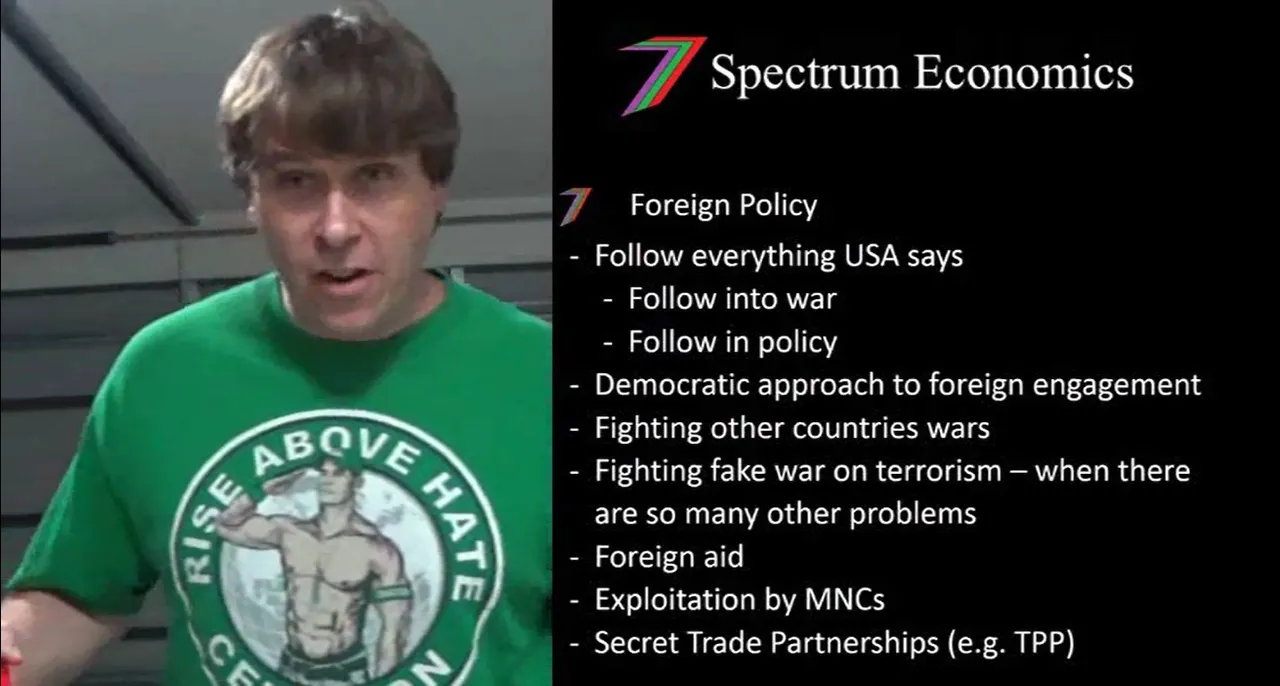
Social Problems
The video ends off by discussing social problems that rarely enter into political debate. These social problems are as follows:
- Rising incarceration rates (Prisons)
- Human rights (gay, disability, gender, race)
- Congestion in cities (demand management policies)
- Focused on small crimes (drug crimes)
- Addressing road safety
- Cigarette ban
- Marijuana ban
- Euthanasia
- Abortion
- Dissolution of family
o Two parents working
o Increased family working hours - Lack of passing on of productivity gains to workers
- Tax evasion by large corporations
- Devaluing of traditional women’s roles
- Animal abuse
o Greyhound racing, horse racing, circuses, zoos - Disrespect for First Nations people
o Taking of land
o Taking of children
o Celebrating their massacre
As seen from the list above, the extent of social problems not debated or discussed is long. This list could easily be extended further. In short, today’s social problems have contributed greatly to reducing the quality of life of citizens. Stress related problems such as mental health, family violence, and suicide rates are rising. Governments only ever want to discuss the symptoms of the problems and not the actual problems. As I have mentioned in other posts and videos. Governments’ love problems. Problems equal more power to them. Treating symptoms does not solve problems but it makes it look like something is being done, hence, minimizes resistance.
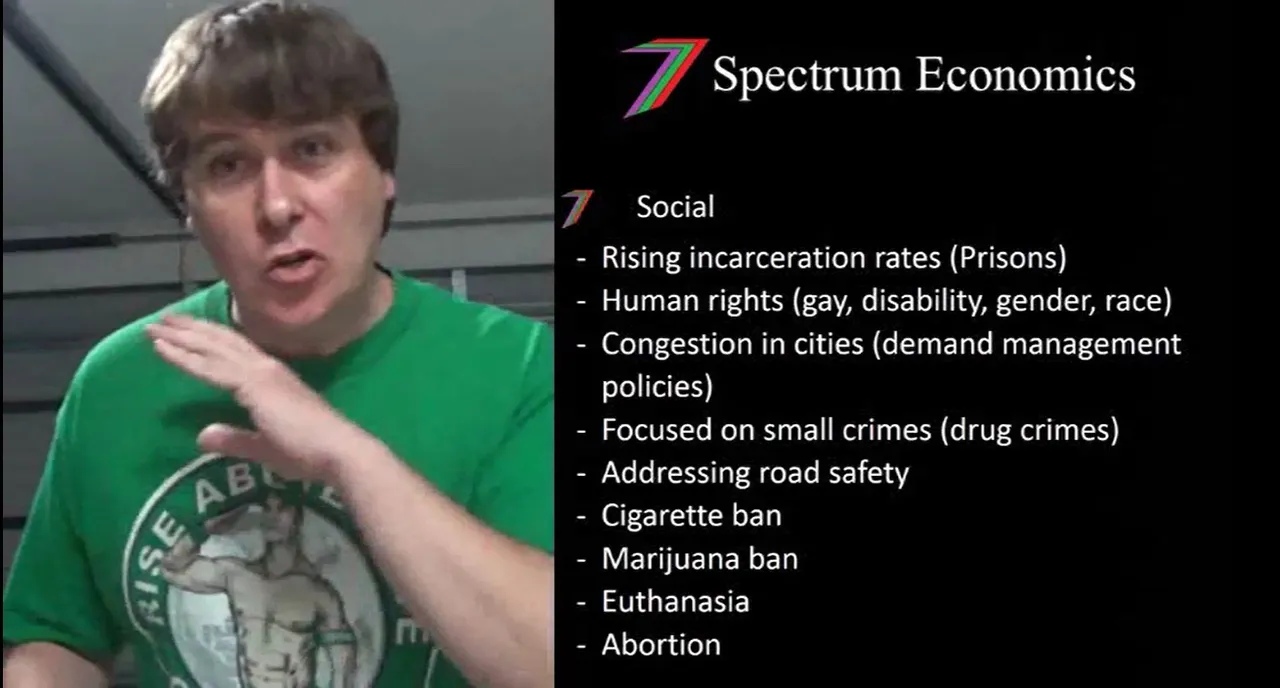
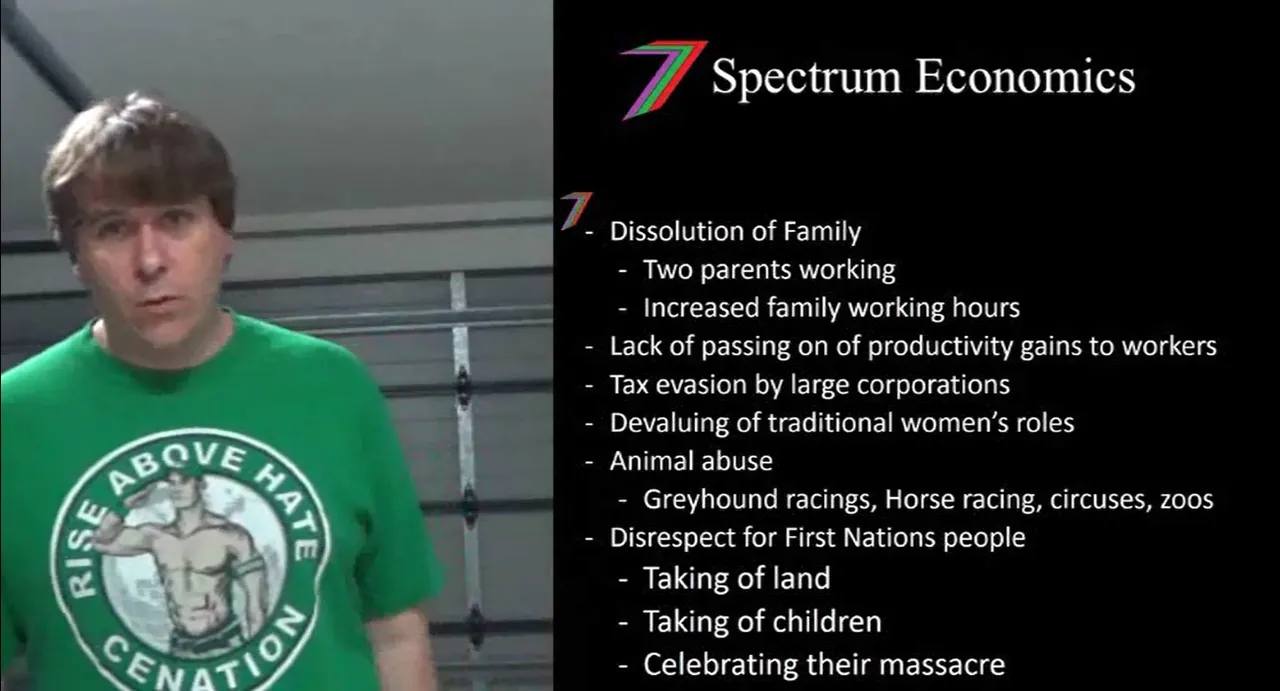
This takes me to the end of this post and the description of Part 3 of my 4 part Democracy and Economics series. I hope you enjoyed the post and video.
The full video can accessed using the link below.
Part 1 of the series is available using the link below.
Part 2 of the series is available using the link below.
The official Spectrum Economics website can be accessed at: https://www.spectrumecons.com
For more exciting videos go to my YouTube channel at https://www.youtube.com/channel/UCILwyLtjl7ZTlYOqFkAwLzw
You can find me on LinkedIn at: https://www.linkedin.com/in/waynedavies-spectrumecons/
You can find me on Facebook at: https://www.facebook.com/SpectrumEconomics/
You can find me on Steemit at: https://steemit.com/@spectrumecons
Other YouTube channels that have very interesting videos relating to Government and democracy are as follows:
HighImpactFlix: https://www.youtube.com/channel/UC7KZFVVnKjiCzkxWD-Qrakg
Anonymous Official: https://www.youtube.com/channel/UCA071Pllf2wk-B8Rkwt47bQ
David Icke: https://www.youtube.com/channel/UCAhmDfQ1LfOYECmNNWgXJ7Q
GlobalResearchTV: https://www.youtube.com/channel/UCvtTGZEcS8mbWdB7prg4QNw
Jesse Ventura: https://www.youtube.com/channel/UCjeYqGx0STkSM6iWknsDl3w
Plus many other channels and websites.
